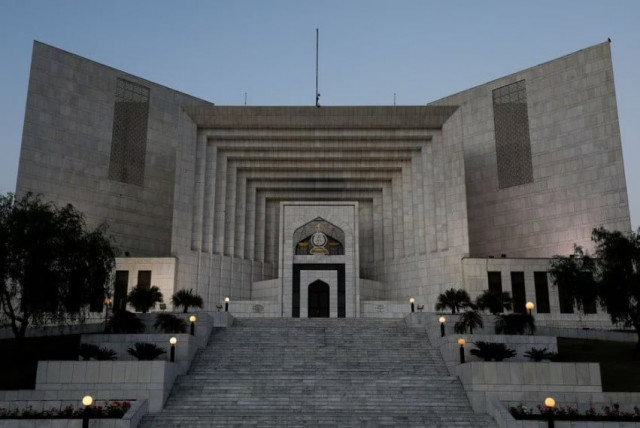‘Law curtailing CJ's powers against Constitution’
SCBA says SC (Practice and Procedure) Act 2023 encroaches on SC’s exclusive powers

The Supreme Court Bar Association (SCBA) president has contended that the Supreme Court (Practice and Procedure) Act 2023 stands in violation of Article 191 of the Constitution as it attempts to intrude on the exclusive powers granted to the apex court.
In a concise statement submitted to the Supreme Court on Tuesday, SCBA President Abid Zuberi argued that Article 191 must be read along with other sections of the Constitution that deal with the functioning of the judiciary.
Zuberi specified that Article 191 confers upon the apex court the exclusive power to make rules regulating its practice and procedure. Article 191 says: “Subject to the Constitution and law, the Supreme Court may make rules regulating the practice and procedure of the court.”
He pointed out that Sections 2, 4 and 6, of the act assented into law by President Arif Alvi on May 26, 2023, after being passed by the parliament and the Senate, “deal with the constitution of benches and therefore falls within the purview of practice and procedure”.
According to the SCBA, while Article 191 is subject to the Constitution, there is no conflicting provision in the Constitution against the powers granted under this, therefore it is not “subject to or subservient to any [other] provision”.
“The Honourable Supreme Court has already enacted rules in relation to its practice and procedure, given that the said field is already occupied, the parliament cannot now enact a conflicting piece of legislation,” wrote the SCBA president.
He further specified that while the parliament can legislate on “enlargements of the jurisdiction of the Supreme Court and the conferring thereon of supplemental powers [as per the Constitution]” it can only do so through a constitutional amendment.
As it stands currently, the parliament cannot interfere in the jurisdiction of the top court, wrote Zuberi, while referring to Articles 184 and 186 of the Constitution.
On March 29, the National Assembly passed the Supreme Court (Practice and Procedure) Bill 2023, which sought to reduce the chief justice of Pakistan’s (CJP) powers to take suo motu action and constitute benches. The Senate endorsed the bill a day later on March 30.
The president, however, returned the bill to the parliament without signing it.
An eight-judge larger bench of the Supreme Court on April 13 “pre-emptively” stopped the enforcement of the bill while hearing a number of petitions filed against the legislation.
However, the bill became a law on April 21,
despite the top court’s order and the National Assembly’s official Twitter account made this announcement.
“Supreme Court (Practice and Procedure) Act, 2023 of the parliament is deemed to have been assented by the president with effect from 21 April 2023, under Clause (2) of Article 75 of the Constitution”.
Through the act, the government limited the CJP’s powers to take suo motu notice as well as powers to constitute benches on his own.
The federal cabinet amended the suo motu powers of the CJP, saying that the top judge of the country cannot automatically initiate suo motu proceedings and proposed that three judges of the Supreme Court would decide if the court should initiate suo motu proceedings in a particular matter.
Section 2 (constitution of benches) of the law states that “every cause, appeal or matter before the Supreme Court shall be heard and disposed of by a bench constituted by the committee comprising the CJP and two senior most judges.” It adds that the “decisions of the committee shall be by majority.”
Section 3 of the proposed law proposes that any matter invoking the exercise of original jurisdiction under clause (3) of Article 184 (original jurisdiction by the Supreme Court) of the Constitution shall be first placed before the committee constituted under section 2 for examination.
It adds that if the committee is of the view that a question of public importance with reference to the enforcement of any of the fundamental rights conferred by Chapter I of Part II of the Constitution is involved, it shall constitute a bench comprising not less than three judges of the Supreme Court which may also include the members of the committee, for adjudication of the matter.
The eight-judge larger bench is going to resume hearing of the petitions filed against the law tomorrow [Thursday].


1724319076-0/Untitled-design-(5)1724319076-0-208x130.webp)
















COMMENTS
Comments are moderated and generally will be posted if they are on-topic and not abusive.
For more information, please see our Comments FAQ